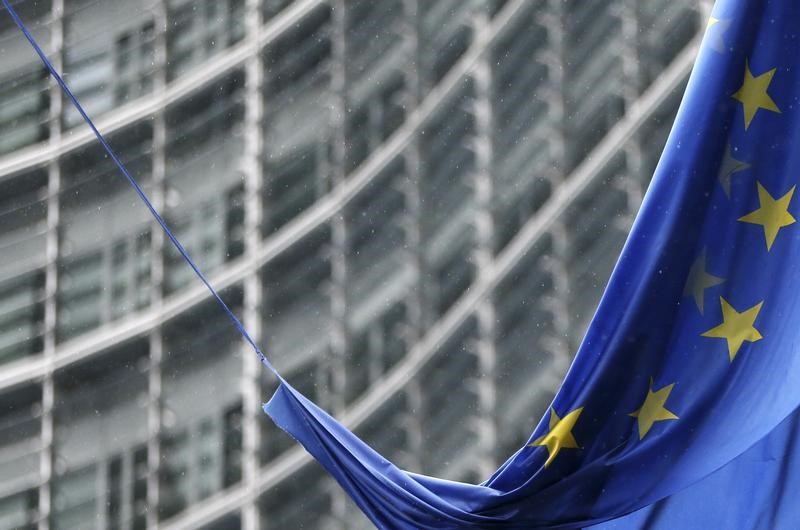FOMC minutes; Delta, PepsiCo to report; gold retreats - what’s moving markets
Investing.com -- UBS has revised its Eurozone GDP forecast for the third time in just seven days, spotlighting the extreme uncertainty sparked by U.S. President Donald Trump’s tariff strategy and Europe’s fiscal response.
The latest revision, published Monday, lifts the Eurozone GDP growth projections for 2025 and 2026 by 0.2 percentage points each, bringing them to 0.7% and 1.0%, respectively. The 2027 forecast remains at 1.5%.
The investment bank attributed the adjustment to the suspension of reciprocal U.S. tariffs on most nations, which eased the projected economic hit from the original trade policy announcements.
The latest revision “is under the assumption that the current level of tariffs will prove to be permanent,” UBS economists led by Reinhard Cluse said in the note.
Just a week earlier, on April 8, UBS had downgraded its growth forecasts to 0.5% for 2025 and 0.8% for 2026, citing “substantially higher U.S. tariffs” and Europe’s new defence and infrastructure stimulus.
UBS then published another scenario analysis after President Trump suspended the reciprocal tariffs on most nations.
That scenario, which assumes the softer tariffs would remain in place after the 90-day moratorium “would probably reduce the economic damage for the Eurozone economy from 0.4pp to 0.2pp for 2025,” economists said.
UBS warns, however, that the current situation remains fluid. “We caution that the current tariff level is unlikely to be a ‘stable equilibrium’,” the economists wrote, highlighting that U.S. tariffs on EU exports had jumped from under 2% to over 20%, before being scaled back to 11–12%.
If no further reductions are negotiated during the moratorium, the EU may retaliate, potentially reigniting trade tensions.
“At least in the short term, this would then likely trigger more damage to GDP growth, and possibly higher inflation,” the economists explained.
A cycle of retaliatory measures might follow, they add, which could eventually bring both sides back to the negotiating table and open the door to lower average tariff rates—though that remains to be seen.
The country-level revisions are similarly cautious. Germany’s 2025 forecast was raised by 0.3 percentage points to 0.0%, with UBS still expecting a “technical recession" in the second half of 2025.
France and Italy saw modest upgrades of 0.1 points for 2025, while Spain, expected to lead growth among the major Eurozone economies, was also revised up to 2.4% for 2025.
